Teachings
By closely observing the lifestyles and needs of people, Swami Vishnudevananda, a renowned authority on hatha yoga and raja yoga, synthesised the four paths of yoga into five basic principles that can be easily incorporated into a daily lifestyle providing the foundation for healthy living. It is on these five principles that the activities of the Sivananda Yoga Vedanta Centres are based.
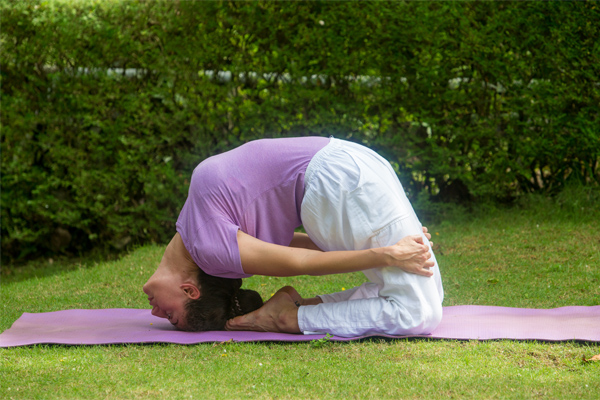
PROPER EXERCISE (Asana)
The twelve classical postures exercise every part of the body, stretching and toning the muscles and joints, the spine and the entire skeletal system. By maintaining the spine’s flexibility and strength, circulation is increased. They work also on the internal organs, glands and nerves keeping all systems in radiant health. By releasing physical and mental tension they also liberate vast resources of energy. As yoga regards the body as a vehicle for the soul on its journey towards perfection, the asanas are designed to develop not only the body, they also broaden the mental faculties and spiritual capacities.
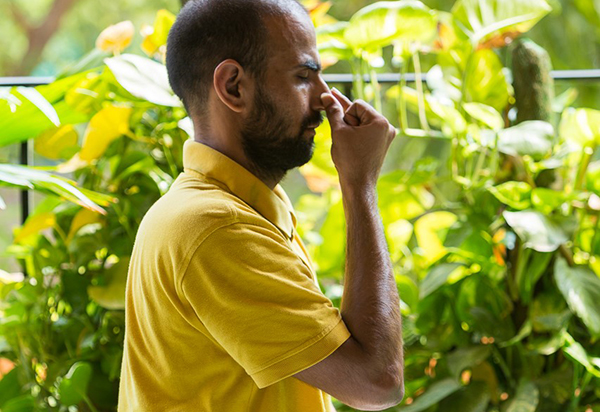
PROPER BREATHING (Pranayama)
Many of us use only a fraction of our lung capacity for breathing, resulting in poor physical and mental health. Yoga teaches us how to use the lungs to their maximum capacity and how to control the breath. Deep, slow, rhythmical breathing increases oxygen intake and removes fatigue and lethargy. Pranayama (control of the vital energy) is achieved through specific breathing exercises. Yoga teaches us that the mind and prana are interdependent. By controlling the prana through breathing exercises we control the mind. Pranayama is a powerful tool to render the mind calm and clear and the intellect sharp. Through the practice of pranayama we increase the intake of prana and experience increased strength and vitality.
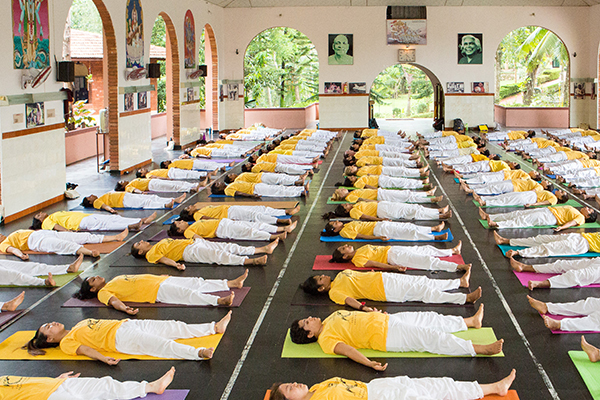
PROPER RELAXATION (Savasana)
When the body and the mind are constantly overworked, their natural efficiency to perform work diminishes. Our stressful lifestyles make it difficult for us to relax. We forget that rest and relaxation are nature’s way of recharging and are an essential ingredient for physical and mental health. Yoga teaches us powerful techniques of deep relaxation. By consciously relaxing every muscle of the body and controlling the breath we rejuvenate the nervous system and attain a deep sense of inner peace. Practices such as meditation lead us to a more profound appreciation of life, bringing joy and contentment into our daily lives.
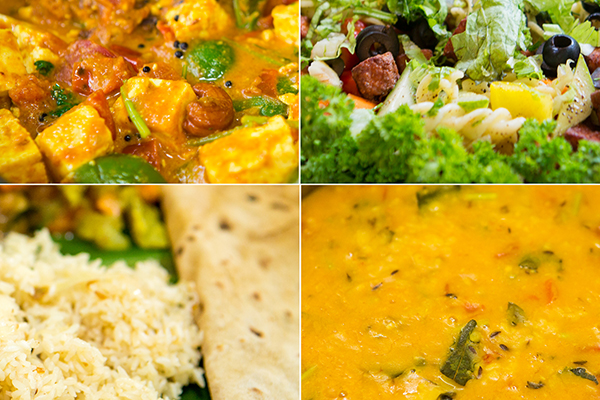
PROPER DIET (lacto-vegetarian)
Besides being responsible for building our physical body, yoga teaches us that the foods we eat profoundly affect our mind. Yoga advocates a lacto-vegetarian diet as an integral part of the yogic lifestyle. A natural diet is based on seasonal, local, fresh, light, nutritional food such as fruit, grains, nuts, seeds, legumes and vegetables. It keeps the body lean and limber and the mind clear and sharp as well as protecting life and the environment. A pure and moderated diet is the best possible guarantee of physical and mental health bringing harmony and vitality to both body and mind.
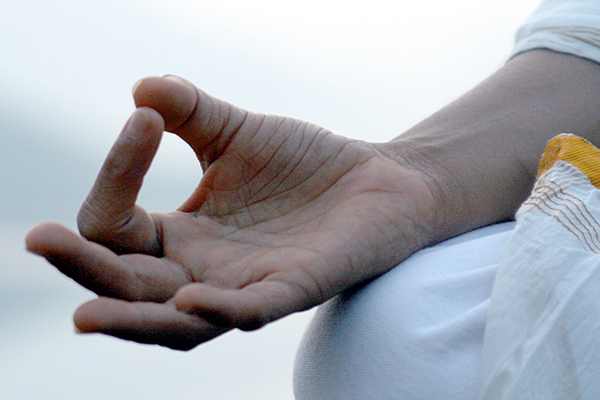
POSITIVE THINKING AND MEDITATION
(Vedanta and Dhyana)
Yoga teaches us that our thoughts are the real cause behind our success and happiness. When we harbour negative thoughts our mind becomes agitated and restless, our actions disturbed and unbalanced. Thoughts of worry and fear are destructive to ourselves and those around us. Opposite thoughts of cheerfulness, joy and courage heal and soothe. They improve our efficiency and increase our mental power. Through various methods of controlling our own thoughts, including the powerful technique of meditation and through vedantic studies, we are led to inner peace, integration and harmony.
The sages of ancient times devised four paths of yoga to suit different approaches to life. These four yogas are not exclusive to each other and are incorporated as a synthesis in the teaching at our Ashrams.
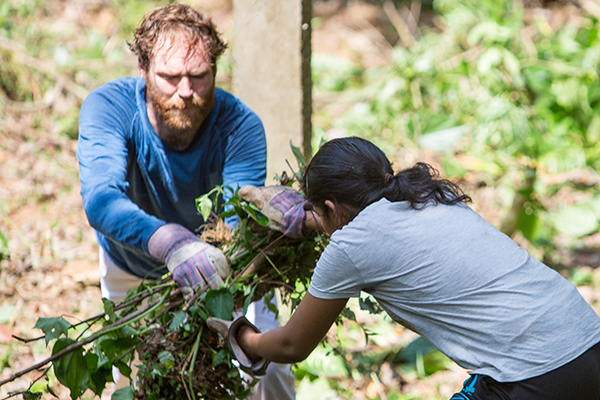
KARMA YOGA
Karma yoga is the yoga of action; it teaches us the secret of work, how to work and serve selflessly without attachment, egoism and expectation of reward. It is the yoga of selfless service to society in all its aspects, family, work, school, friends. We learn to serve others with tolerance and patience, with no feeling of grudge or remorse, nor to expect thanks or gratitude or appreciation for our actions. We experience the immeasurable joy of work for work’s sake, and of service to all. Acting selflessly, with the attitude of service purifies the heart, removes selfishness and prepares us for some of the higher practices of yoga.
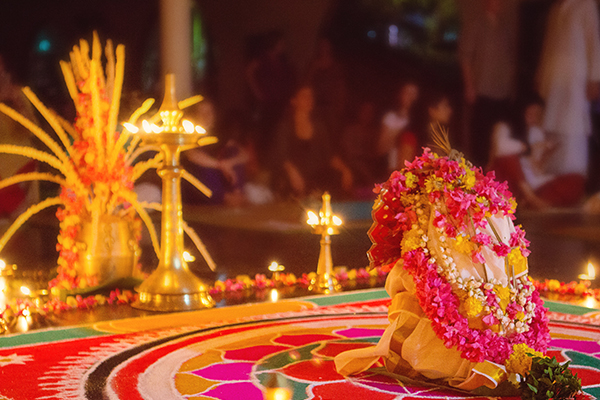
BHAKTI YOGA
The path of bhakti yoga or the yoga of devotion is the second of the four paths of yoga. It attracts those of a devotional nature. It is the path of channeling and transmuting our emotional nature into pure, unselfish divine love. It is love for love’s sake. It destroys restlessness and distraction of the mind. Bhakti is intense devotion and supreme attachment to a higher source. Through faith, prayer, and worship we surrender to a higher power and develop unconditional love. It is the direct approach to the ideal through the heart. It opens the heart and develops the supreme virtue of humility.
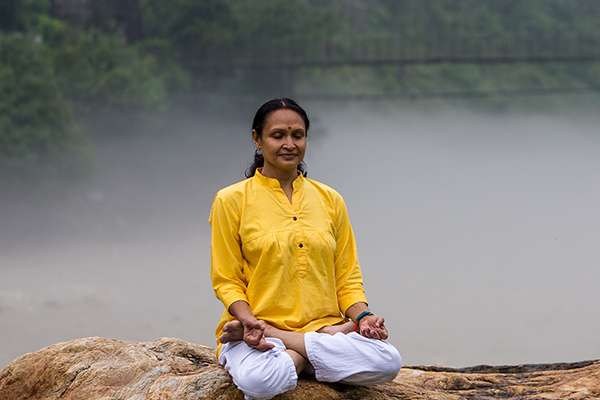
RAJA YOGA
Raja yoga is the practice of controlling the mind, leading to meditation and the super-conscious state. It attracts those of an analytical, scientific temperament and consists of eight limbs or steps. Based on the Yoga Sutras of Patanjali, raja yoga outlines the process of attaining stillness of the mind. It takes us through each step from laying a firm foundation of ethical behaviour (yamas), through personal disciplining of the mind (niyamas), controlling the body and breath (asana and pranayama) control of the senses (pratyahara), concentration (dharana), meditation (dhyana) to the final step of the super-conscious state (samadhi).
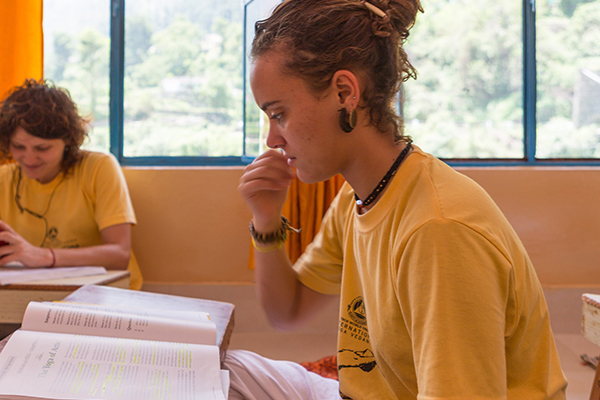
JNANA YOGA
Jnana yoga (the yoga of knowledge) is the intellectual approach to spiritual evolution. It demands a subtle, sharp intellect to grasp its fundamental principles. For that reason this path can only be approached once we have established a firm foundation in the other three paths. Based on the philosophy of vedanta, the science of Reality, we practise viveka, discrimination between the real and the unreal, the permanent and the impermanent and vairagya, non-attachment, desirelessness. We learn of our essential divine nature, the unity of life, the oneness of consciousness. Vedanta proclaims that we are of one pure, supreme consciousness.

